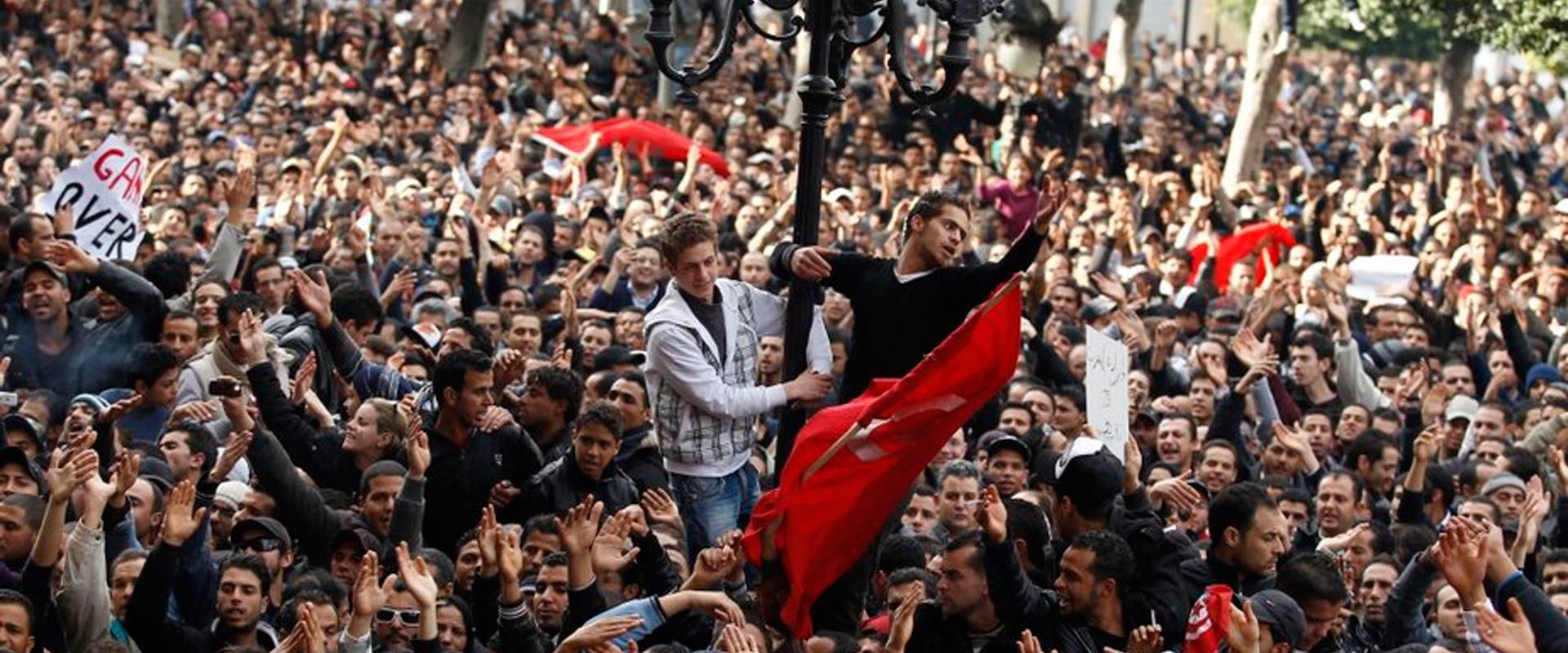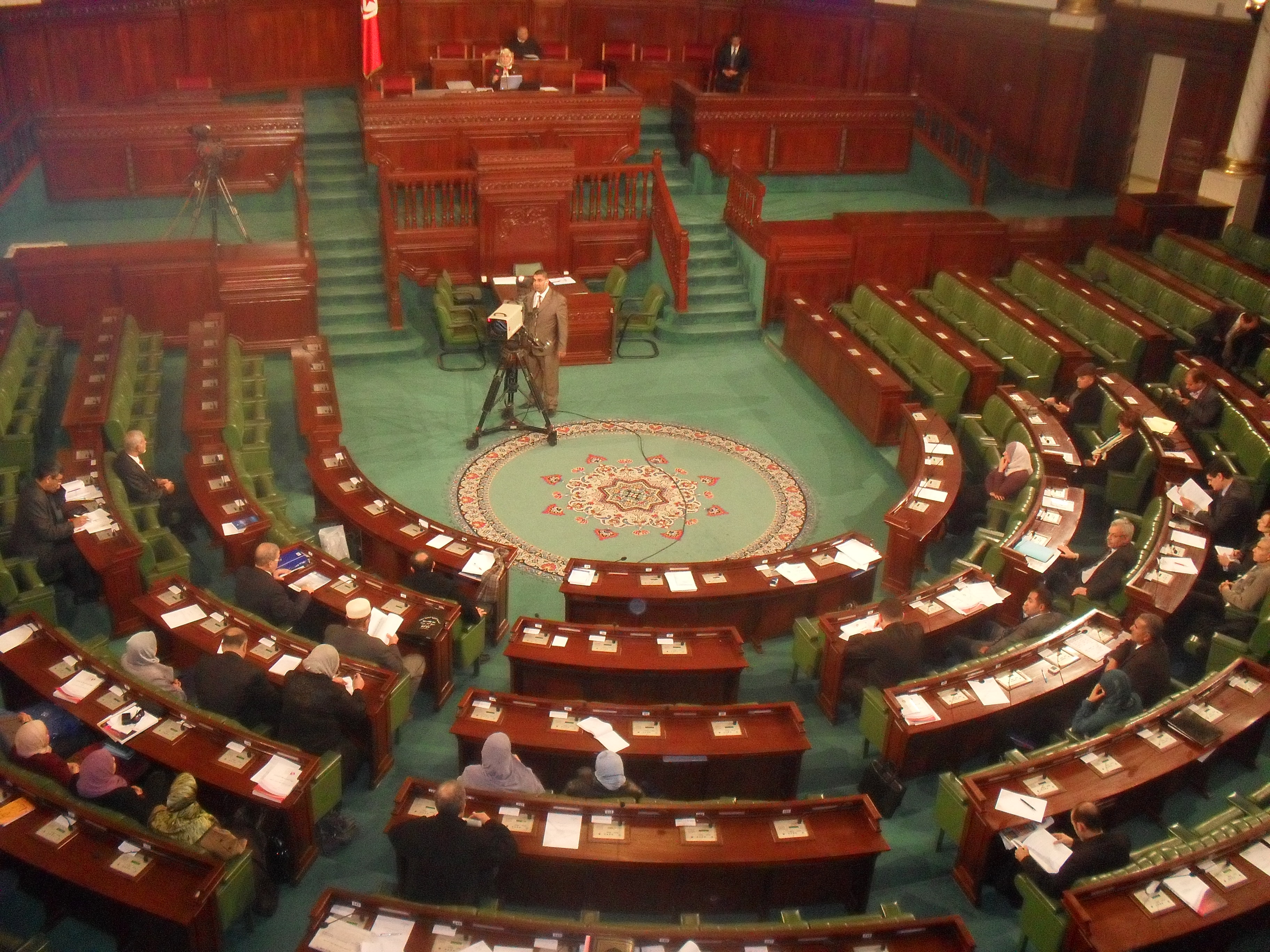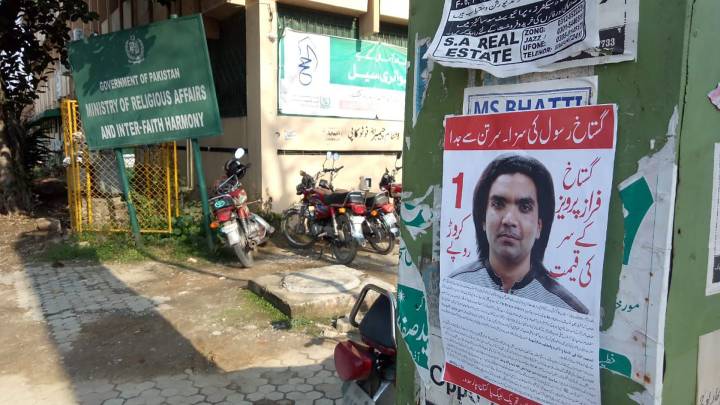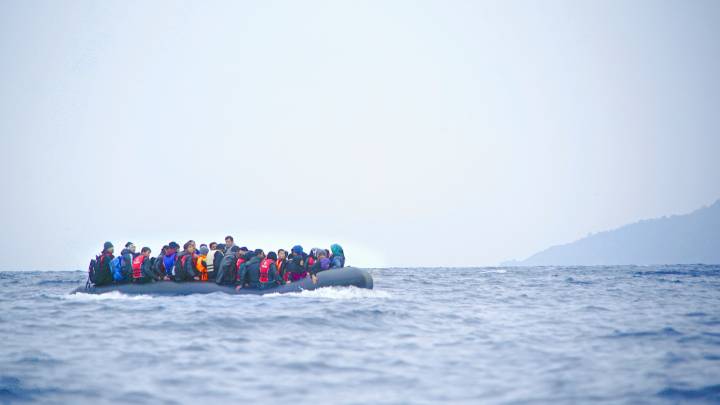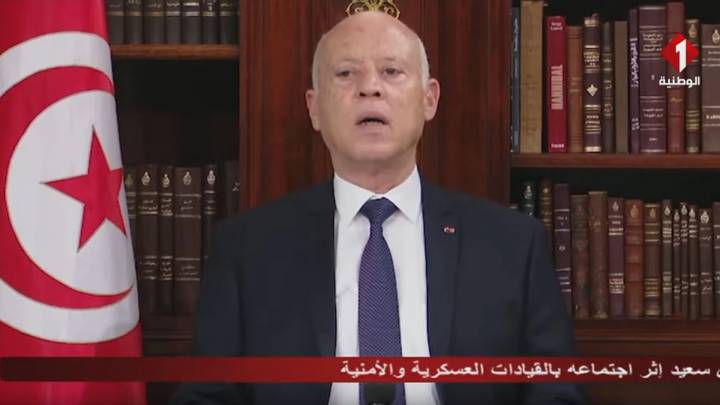Watchdog al-Bawsala is a rare example of an NGO operating to bring transparency to political processes and engage ordinary citizens in a region wracked by government crackdowns.
Before the revolution in Tunisia, the notion of an organisation tasked with scrutinising the actions of the country’s politicians and sharing this with the wider public would have seemed laughable. And indeed, as many civil society organisations face crack-downs across the wider Middle East and North Africa region, al-Bawsala (the Compass) stands out as a bright light among the many NGOs in Tunisia that have helped shape the political landscape since 2011.
To the extent that Tunisian lawmakers and public agencies today feel accountable to the citizenry, al-Bawsala can claim much of the credit.
Many, including Norway’s Nobel committee, have credited Tunisia’s powerful civil society with steering the small North African country past the pitfalls that beset many of its 2011 revolutionary contemporaries. However, the violent ousting of the country’s dictator, Zine El Abidine Ben Ali, left behind a public unschooled in and unaware of many of the democratic structures they were now being asked to play a critical role in helping define.
Standing outside the grand chamber of Tunisia’s Assembly of the Representatives of the People (ARP), Imen Ben Mohamed, a Tunisian politician and deputy of the Ennahda Party, tells zenith that al-Bawsala is one of the NGOs that have truly supported the principle of transparency and open government. “Together, we worked together hand in hand to implement the principle of transparency [into politics] and Bawsala has succeeded in doing so, starting with its presence during public hearings at the National Constituent Assembly [NCA] and also during the drafting of the constitution.”
Empowering the public with political insight
Founded by a small group of mostly student activists in May 2012, al-Bawsala seeks to bridge the gap in knowledge and provide the public with information on the seismic shifts convulsing the political landscape. Using communication media previously alien to the political sphere, al-Bawsala began to monitor the work of the committees drafting the constitution and disseminate it to a public hungry for information. Through its website and social media accounts, al-Bawsala has created a single information point within the political morass capable of connecting both citizen and lawmaker.
The organisation’s website contains a wealth of statistical information on governance in Tunisia. More than 223,000 followers of its Facebook page look to the NGO for up-to-date information on events occurring in the Parliament, while a similar number of people follow the group’s rolling Twitter coverage of events within the ARP chamber as they happen.
Its influence is hard to understate. Sarah Feuer, a specialist in politics and religion in North Africa and a Soref Fellow at the Washington Institute, says that from the early days of the uprising and its aftermath, al-Bawsala took the lead in instilling notions of accountability and transparency in the Tunisian public consciousness. “To the extent that Tunisian lawmakers and public agencies today feel accountable to the citizenry, al-Bawsala can claim much of the credit,” she says.
The municipal elections are about proving to a jaded public that democracy can work.
This sentiment is echoed by Amel Ben Ali, a civil society activist operating within a number of non-governmental associations. “Before the revolution, we were not really into politics in Tunis, so al-Bawsala has been helping us a lot in letting us know how the elections are going on, how the decisions [are made] and how the laws are decided.”
The current president of al-Bawsala, Chaima Bouhlel, believes that the NGO’s overriding achievement during the last four years has been in driving a cultural shift in which a formerly closed Tunisian political sphere has opened, becoming one where the principles of transparency are at least acknowledged. “We slowly fought our way into the NCA [tasked with drafting the country’s new constitution] and then decided it would be really important to monitor the attendance and later on to actually publish the voting results on anything passing through the assembly.”
With information came clarity. By 2014 and the eventual passing of Tunisia’s landmark constitution, al-Bawsala had established itself as a fixed point within the ever-shifting Tunisian political landscape. However, with the passing of that milestone document, unique in the Arab world, new difficulties arose in grafting the principles embodied within the markedly progressive constitution onto a legal framework originally designed to serve the whims of both colonisers and autocrats. “There were huge expectations set by citizens after the revolution,” Bouhlel explains. “The challenge now is to actually change the reality on the ground, to change things for the positive.”
Proving that democracy works
One looming challenge is the constitutionally mandated devolution of power from the government – one whose instincts are looking increasingly centralistic – to the politically marginalised municipalities throughout the country that have historically been left to administer the local paperwork of the central state. After numerous deferments, elections for Tunisia’s revised and reinvigorated municipalities are currently slated for some point in 2017. Many are sceptical about whether they will take place then or, in the face of the economic crisis that currently engulfs the country, if reforms will be fully honoured. For Bouhlel, the municipal elections are about proving to a jaded public that democracy can work. “If a citizen in the municipality elects a municipal council who actually respond to the needs that citizen has on the ground, and they actually improve their reality, then they can believe that the assembly on a national level can also respond to their reality.”
Al-Bawsala has done much to contribute to Tunisia’s investment in its new democracy, but within the region it is largely an isolated voice. While similar parliamentary watchdogs are active in Morocco and interest has been shown in Libya, Algiers and Cairo remain alien territory. As Feuer describes it, al-Bawsala is “undoubtedly a model for others in the region, even if similarly robust transitions to democracy appear unlikely for the moment”.
